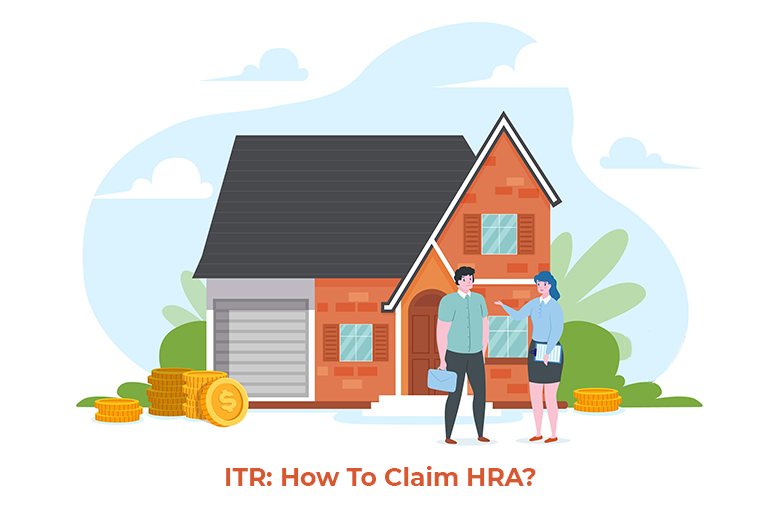Are you claiming false HRA while filing ITR? This is how much it can cost you
As taxpayers navigate the complexities of filing their Income Tax Returns (ITR), one common pitfall that emerges is the misreporting or false claiming of House Rent Allowance (HRA). While it might seem like a quick fix to reduce tax liabilities, the repercussions of such actions can be severe, both financially and legally. With stringent tax laws and increasing scrutiny by the Income Tax Department, understanding the potential costs of claiming false HRA is crucial for every taxpayer.
Understanding HRA and Its Importance
House Rent Allowance (HRA) is a component of many salaried individuals' payroll structured to help offset the cost of rented accommodation, which can be claimed for tax deductions under Section 10(13A) of the Income Tax Act. The allowance is beneficial as it effectively reduces taxable income, but it requires proper documentation and truthful reporting.
The Lure of False Claims
The temptation to claim a higher HRA deduction can be driven by the desire to maximize tax returns. Some individuals submit fake rent receipts, or manipulate the amount of rent paid to a landlord, even if living with parents or in owned property. The perceived immediate benefit is a lower tax liability, but this short-sighted gain overlooks the severe penalties for tax evasion.
Legal Framework and Penalties
The Income Tax Act of India is clear about the consequences of misrepresentation or deceit in tax filings. Claiming false HRA not only results in the reassessment of the tax returns but can also lead to penalties ranging from 100% to 300% of the tax evaded. Moreover, underreporting or misreporting income attracts penalties under sections 270A and 271 of the Act.
Case Studies: The Cost of False HRA Claims
Several case studies illustrate the financial and legal repercussions of falsifying HRA claims:
- Case 1: A software engineer in Bengaluru claimed HRA using fake rent receipts. The discrepancy was flagged during routine assessments, leading to a penalty that was three times the tax amount evaded.
- Case 2: In Delhi, an HR professional was found to have claimed HRA for rent paid to her mother, without any actual monetary transaction. This led to penalties and a directive to repay the evaded tax with interest.
Income Tax Department's Crackdown
With advanced analytics and cross-referencing databases, the Income Tax Department has intensified its efforts to catch discrepancies in HRA claims. Tax return scrutiny has become more rigorous, with specific attention to high-value claims and mismatched information.
- Data Cross-Verification: The IT department cross-verifies rent receipts with landlords' tax returns to check for consistency in declared income.
- Third-Party Reports: Banks and other financial institutions report high-value transactions, which are cross-checked against claimed HRA.
- Social Media Monitoring: In some cases, social media platforms are monitored to match lifestyle patterns with income declarations.
Expert Advice: How to Stay Compliant
Tax experts emphasize the importance of honesty in tax filings:
- Documentation: Always keep genuine rent receipts and lease agreements.
- Consistency: Ensure the rent paid matches the transactions in your bank statements.
- Legal Consultation: When in doubt, consult a tax professional to understand the implications of HRA claims.
Real-Life Impact: Voices from Taxpayers
Many taxpayers who have faced legal issues due to false HRA claims share their experiences:
- Vikram Singh, Mumbai: "What seemed like a small adjustment to reduce my tax payment turned into a nightmare of legal issues. It wasn't worth the stress and financial loss."
- Anita Desai, Chennai: "I was audited two years back and had to pay a hefty fine for a mistake I made in one year’s tax filing. It's better to be upfront and clear in your filings."
Moving Forward: Policy Recommendations
To mitigate issues surrounding HRA claims, policy experts suggest further simplifications of the tax rules and enhanced taxpayer education on legal provisions and penalties. Additionally, increased transparency in the process of claiming HRA could discourage taxpayers from filing false claims.
The risks associated with falsely claiming HRA on ITRs extend beyond immediate financial penalties; they can lead to criminal prosecution and severe damage to one’s financial and professional reputation. As the tax landscape continues to evolve with more stringent checks and balances, it is in every taxpayer's best interest to adhere strictly to the laws and ensure that all declarations are accurate and substantiated by genuine documentation. In doing so, taxpayers not only avoid hefty penalties but also contribute to the broader integrity of the tax system.




